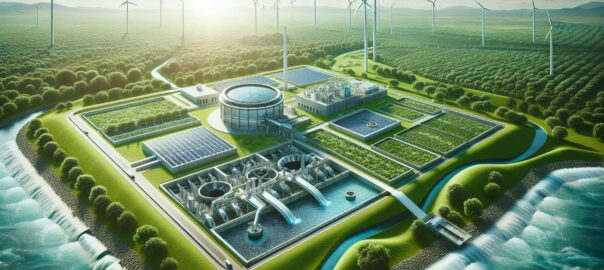In the modern world, the effective management and treatment of wastewater are crucial for the health of both ecosystems and human communities. As urbanization increases, so does the need for sustainable wastewater treatment solutions that can keep pace with growing populations and continuously evolving regulations. This article explores the complexities of integrated wastewater treatment systems (IWTS), the multi-faceted approach they offer for managing waste, their benefits, challenges, and best practices for their implementation.
An Overview of Integrated Wastewater Treatment Systems
Integrated wastewater treatment systems are designed to combine various treatment processes and technologies to manage and treat wastewater efficiently from its source to its eventual discharge or reuse. The goal of IWTS is to minimize environmental impact, meet regulatory requirements, and potentially reclaim water, energy, and other valuable resources.
The Components of IWTS
IWTS comprise several components working in synergy:
- Pretreatment: Removes large waste solids and adjusts the wastewater’s chemical composition to facilitate downstream treatment.
- Primary Treatment: Typically involves sedimentation, allowing solids to settle, thus reducing suspended particles.
- Secondary Treatment: Biological processes are used to degrade organic matter, often involving activated sludge systems or biofilters.
- Tertiary Treatment: Advanced treatment methods, such as filtration, disinfection, and nutrient removal, ensure that the final effluent meets the required standards.
- Sludge Treatment: The solids separated during the process are treated and safely disposed of or repurposed.
Technologies and Innovation in IWTS
Innovation plays a key role in enhancing IWTS. Advanced technologies such as membrane bioreactors (MBRs), ultraviolet (UV) disinfection, and reverse osmosis are increasingly common. These technologies can improve efficiency, reduce footprints, and enhance the possibility of water reuse.
The Benefits of Implementing Integrated Wastewater Treatment Systems
The incorporation of IWTS presents several advantages:
- Environmental Protection: By effectively removing contaminants, IWTS help protect water bodies from pollution.
- Regulatory Compliance: These systems are tailored to meet strict effluent quality standards and can adapt to changing regulations.
- Cost Efficiency: Integration can lead to operational savings through energy recovery and reduced chemical usage.
- Resource Recovery: Opportunities to recover resources such as water, nutrients, and energy enhance sustainability.
- Resilience to Climate Change: IWTS can be more adaptable to extreme weather patterns, contributing to better water management in facing climate change.
Challenges in Wastewater Treatment Integration
Despite the benefits, several challenges may impede the widespread adoption of IWTS:
- High Initial Investment: The upfront cost of advanced treatment systems can be significant.
- Technological Complexity: IWTS necessitate skilled operators and rigorous maintenance.
- So Regulatory Barriers: Misalignment between technology capabilities and regulations can limit implementation.
- Public Perception: There can be resistance from communities, particularly when reclaimed water is introduced.
Best Practices for Implementing IWTS
To overcome challenges and harness the full potential of IWTS, certain best practices should be followed:
- Feasibility Studies: Prior to implementation, comprehensive studies should evaluate the social, economic, and environmental aspects of the project.
- Stakeholder Engagement: Engaging the community and stakeholders early on can foster acceptance and support.
- Scalable Design: Systems should be designed with scalability in mind to accommodate future growth.
- Operator Training: Investing in the continuous training of operators ensures efficient system management.
- Regular Maintenance: Preventative maintenance is key to long-term system performance.
The Road Ahead for IWTS
As the pressure on water resources increases globally, the importance of integrated wastewater treatment systems cannot be overstressed. By adopting best practices and embracing technological innovation, communities can implement effective, sustainable, and integrated solutions that protect the environment while providing economic benefits.
Sources for Further Reading
- Water Environment Federation. (2021). Integrating Innovative Technologies into Wastewater Treatment. https://www.wef.org/
- United States Environmental Protection Agency. (2022). Wastewater Treatment Processes. https://www.epa.gov/
- Global Water Intelligence. (2020). The Future of Wastewater Treatment. https://www.globalwaterintel.com/
IWTS represent a remarkable advance in our approach to wastewater management – one that can not only lead to cleaner water and a healthier environment but to a more sustainable and resource-efficient future as well. As we continue to refine and integrate these systems, the prospects for a cleaner world look ever more promising.
